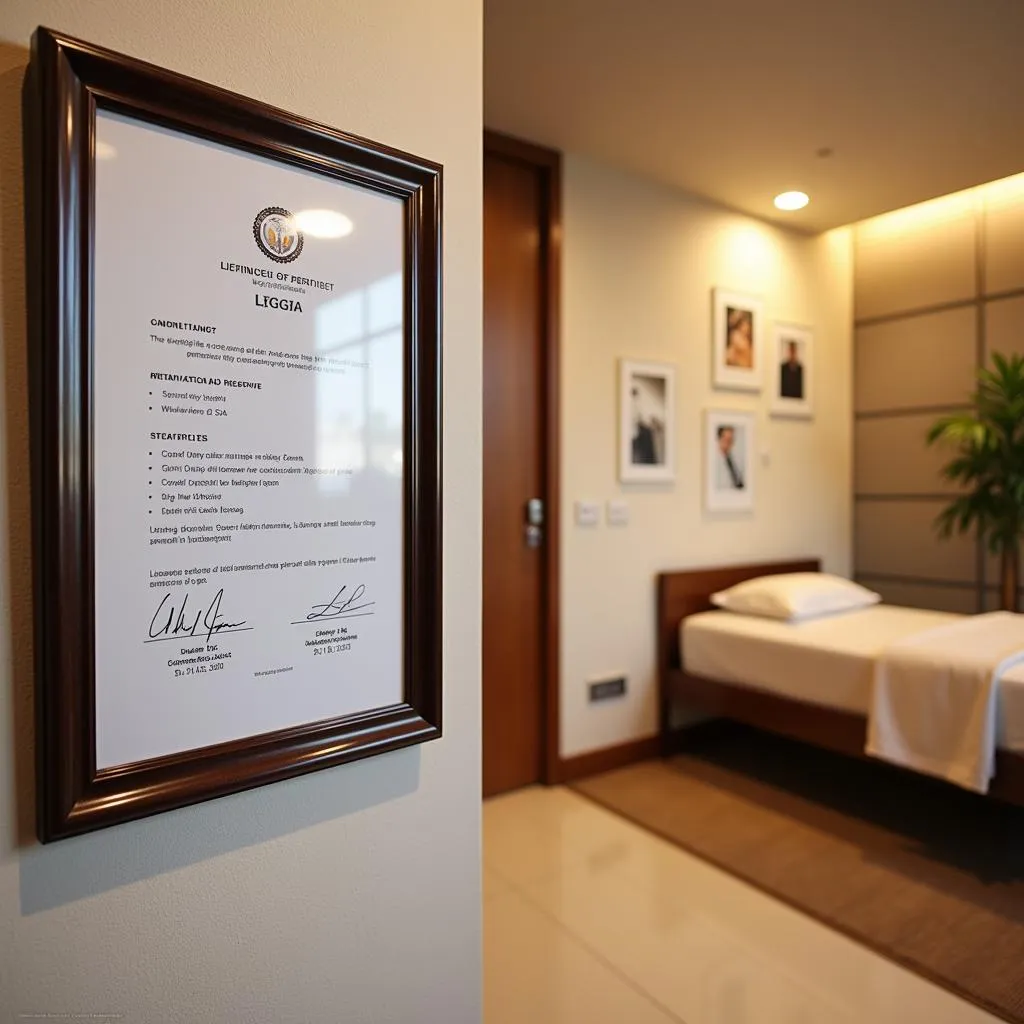The legality of spas in India is a topic often shrouded in confusion. While many enjoy the relaxing and rejuvenating experiences spas offer, questions arise regarding their legal standing and the regulations governing their operation.
Understanding the Legality of Spas in India
India lacks specific national legislation explicitly regulating the spa industry. However, this doesn’t necessarily mean all spa operations are illegal. The legality of a spa largely depends on the nature of services offered and the local laws governing businesses in the specific state.
State-Level Regulations
Each state in India has its own set of laws and regulations pertaining to businesses, including those in the wellness and beauty sector. Some states may have specific licensing requirements for spas, outlining the services they can provide, employee qualifications, and hygiene standards. For instance, some states require spas to obtain licenses under the Shops and Establishments Act or the Municipal Corporation Act.
The Importance of Due Diligence
Before setting up or visiting a spa in India, it’s crucial to conduct thorough due diligence. This includes researching the specific regulations in the relevant state and verifying the spa’s compliance with those regulations. Checking for licenses and permits displayed prominently at the spa is a good starting point.
 Spa license displayed in India
Spa license displayed in India
Common Misconceptions
There are several misconceptions surrounding the legality of spas in India:
- All Spas Are Illegal: This is incorrect. As long as spas adhere to the local regulations and licensing requirements of their respective states, they can operate legally.
- Spas Can Offer Any Service: This is also false. While many spas offer a wide range of services, some treatments, especially those involving medical procedures, might be restricted or require additional qualifications for practitioners.
- Lack of Regulation Means No Standards: Even in the absence of specific national legislation, many reputable spas adhere to high standards of hygiene, professionalism, and ethical practices.
Types of Spas and Their Legality
The legality of a spa in India can also be influenced by the type of services it offers:
- Ayurvedic Spas: Offering traditional Indian therapies like massage and herbal treatments, these spas generally operate legally under the Ayurvedic and Unani systems of medicine.
- Beauty and Wellness Spas: These spas, offering services like facials, massages, and body treatments, are generally considered legal as long as they comply with state-level regulations.
- Medical Spas: Offering services that overlap with medical procedures, such as botox injections or laser treatments, these spas require additional licenses and adherence to stricter regulations.
What Happens When Spas Operate Illegally?
Spas operating without the necessary licenses or violating state regulations can face consequences, including:
- Fines and Penalties: Monetary fines can be imposed on spa owners for non-compliance.
- Closure of the Spa: Authorities have the right to shut down spas found to be operating illegally.
- Legal Action: In some cases, criminal charges can be filed against spa owners for serious violations, such as engaging in unethical or unsafe practices.
 Indian authorities conducting a raid on an illegal spa
Indian authorities conducting a raid on an illegal spa
Staying Informed and Choosing Reputable Spas
To ensure a safe and enjoyable spa experience in India, it’s essential to stay informed and choose reputable spas.
- Research Spa Regulations: Familiarize yourself with the specific regulations in the state you plan to visit or operate a spa in.
- Verify Spa Licenses: Check for displayed licenses and permits and verify their authenticity.
- Read Reviews: Online reviews from previous customers can provide insights into a spa’s reputation and practices.
- Ask Questions: Don’t hesitate to ask the spa about their licenses, staff qualifications, and hygiene practices.
Conclusion
While the legality of spas in India can seem complex, understanding the state-level regulations and choosing reputable establishments ensures a safe and enjoyable experience. By staying informed and doing your research, you can confidently enjoy the numerous benefits of India’s diverse spa offerings. Remember, a relaxing spa day shouldn’t come with legal worries.
FAQs
- Are massage parlors legal in India? The legality of massage parlors is a gray area in India. While some operate legally, offering genuine massage therapy, others may be fronts for illegal activities. It’s crucial to choose reputable establishments and verify their licenses.
- What is the difference between a spa and a salon? Salons primarily focus on hair and beauty services, while spas offer a wider range of treatments, including massages, facials, and body therapies, often with a focus on relaxation and well-being.
- How can I report an illegal spa? You can report an illegal spa to the local police station or the municipal corporation. Provide them with the spa’s address and any evidence you have of illegal activities.
For further information on [Is Spa Legal In India Informational], you can visit our website. We also have articles on topics like [ayana resort and spa wedding] and [rajkot spa raid 2019].
If you need assistance, please contact us at Phone Number: 0373298888, Email: [email protected] Or visit our address: 86 Cau Giay, Hanoi. We have a 24/7 customer support team.